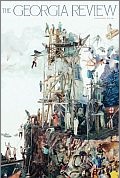Heavy damp blue smoke loses its way among bending reed and rill, from
heaps of turved hassocks, where they’ve readied land for ridging to curb flood
and purify the air, he says, though come fall of leaf it will be fen again. For now,bitterns boom, cow calls to calf, midges whine, mist catches on low bushes,
a thin cauling that covers causeways till the sun’s fist scatters it where mere’s
mist clashes against the sky Ely’s towers probe, glare-white. Facing the mere,on bare patches godwits caught in crown nets sit, silent, for market, catch a last
glimpse of rippling waves, a moorhen gliding in until her feet dig out a wake
pointing to cattle that hurry for a final watering before the drovers set them ona southward track. A blue heron’s fixed by his unblinking eye on the spot where
a fish leapt. If a wind could get on track it would still lack motive to move anything,
even the feather that just fell, or the stalled swallow-tail. This all means watersmuzzled by the projector, not to run like froward beasts. So the Dutchman says.
Free rivers governed, water kept within banks, then, on bail, let go by careful sluices,
caught and bridled, made to run in traces, common fens trapped, tamed by engines,all to be land rich as before the Flood, foison for all, says he. But from the east,
a flash from the bank we’d burst, sluice and clow freed, bursts of blue where
flocks of teal skid in, dip necks, splash like fish, so water steals from light the waywinter turns water with sheer winds slicing straight from Muscovy that overnight
bring dead hand and killing fogs, time of hoar-frost fruits, water turned to
bone, world the essence it has ever been, cast still in the heart’s core.
The Fens, 1630s
—William Camden, Brittania
Feature Date
- November 2, 2018
Series
Selected By
Share This Poem
Print This Poem
Copyright © 2018 by Brian Swann
All rights reserved.
Reproduced by Poetry Daily with permission
Brian Swann’s most recent books are Sunday Out of Nowhere: New and Selected Poems (Sheep Meadow Press, 2018) and a collection of short stories, Not the Real Marilyn Monroe (MadHat Press, 2018). Current manuscripts include another poetry collection, “William Blake and Space Travel,” and “Tsenacomakah,” a novel set in early-seventeenth-century Virginia. Another Log on the Fire: New and Selected Fiction is forthcoming from MadHat in 2019.

Summer 2018
Atlanta, Georgia
University of Georgia
Editor
Gerald Maa
Managing Editor
C. J. Bartunek
Founded at the University of Georgia in 1947 and published there ever since, The Georgia Review has become one of America’s most highly regarded journals of arts and letters. Each quarterly issue offers a diverse, thoughtfully orchestrated gathering of short stories, general-interest essays, poems, reviews, and visual art.
Never stuffy and never shallow, The Georgia Review seeks a broad audience of intellectually open and curious readers—and strives to give those readers rich content that invites and sustains repeated attention and consideration. The physical journal is made to last, expertly printed on fine paper and perfect bound for durability and ease of shelving in one’s library, and the content is made to last as well: over the years, many subscribers have told us that The Georgia Review’s offerings prompt them not only to read every issue cover to cover but also to return to those issues and to share them with friends and colleagues.
Pulitzer Prize winners and never-before-published writers are equals during our manuscript evaluation process, whose goal is to identify and print stories, poems, and essays that promise to be, in the famous words of Ezra Pound, “news that stays news.”
“The Georgia Review is the only magazine I read from cover to cover. In other publications I usually find several things I really like; in The Georgia Review I love nearly everything.”
—Fleda Brown
Poetry Daily Depends on You
With your support, we make reading the best contemporary poetry a treasured daily experience. Consider a contribution today.



